Even though the taxi strike in the Western Cape is over, the taxi industry has lost tens of millions in revenue and Cape Town is reeling in the aftermath.
The province is still taking stock of the economic impact of the strike and the loss of five lives, including the killing of a British doctor, which will probably leave a blot on South Africa’s name.
“We lost R15-million per day,” said Nceba Enge, first deputy chairperson of the SA National Taxi Council (Santaco), during a press conference that was held a day after the strike was called off. “Lives were lost, too, and those can never be replaced.”
Taxi operators stopped work for eight days in an effort to persuade the City of Cape Town to relax a by-law that has led to their vehicles being impounded. Commuters could not go to work for days on end and those who tried to do so were intimidated.
Eventually, the strike became a breeding ground for violence and looting. In addition, Santaco members were confirmed to have brought rifles to the Cape Town International Convention Centre, where negotiations were taking place. This was also where the Netball World Cup was being hosted.
The MEC for mobility, Ricardo Mackenzie, spoke against such conduct.
“The strike has been devastating. There are a lot of lessons to be taken from here. Violence is not the way to solve the problems. We’ve done this since 1994.
“This matter could have been resolved a week ago. Bringing rifles outside the meeting is unacceptable during the Netball World Cup,” he said.
On 7 August, the UK issued foreign travel advice that mentioned the dangers that the strike could cause.
“There are ongoing minicab taxi strikes in the Cape Town area. These strikes have the potential to turn violent and may impact multiple areas including journeys to and from the airport … Be aware that GPS services could divert you into less secure areas or into ongoing protests,” it read.
Read more in Daily Maverick: Western Cape taxi strike updates
The same day, a 40-year-old British surgeon, Kar Hao Teoh, was shot dead after taking a wrong turn on his way from the airport.
The decision to call off what had become a protracted strike was taken late in the evening on Thursday, 10 August, but tension still seemed apparent at a press briefing the next morning as Santaco continued to contradict the City of Cape Town. You could cut the atmosphere with a knife.
It was announced that all stakeholders would meet to decide which laws should be changed to reach a peaceful resolution.
Santaco’s Enge thanked the City for “nodding” to its request to release vehicles that had been impounded under City regulations not included in national law.
Mayor Geordin Hill-Lewis, on the other hand, said that if Santaco felt vehicles had been impounded outside national law, it should produce evidence to be presented to a prosecutor, who could release the vehicles.
A major part of the agreement was that Santaco would never again declare an immediate strike – it would give at least 36 hours’ notice. This is to prevent a repeat of the ugly scenes of thousands of people being forced to walk home.
Second, there would be a mechanism to enable disputes to be taken directly to the premier and the mayor before a strike is considered. Santaco requested that a representative of national government be part of the task team that is being formed, and this was agreed.
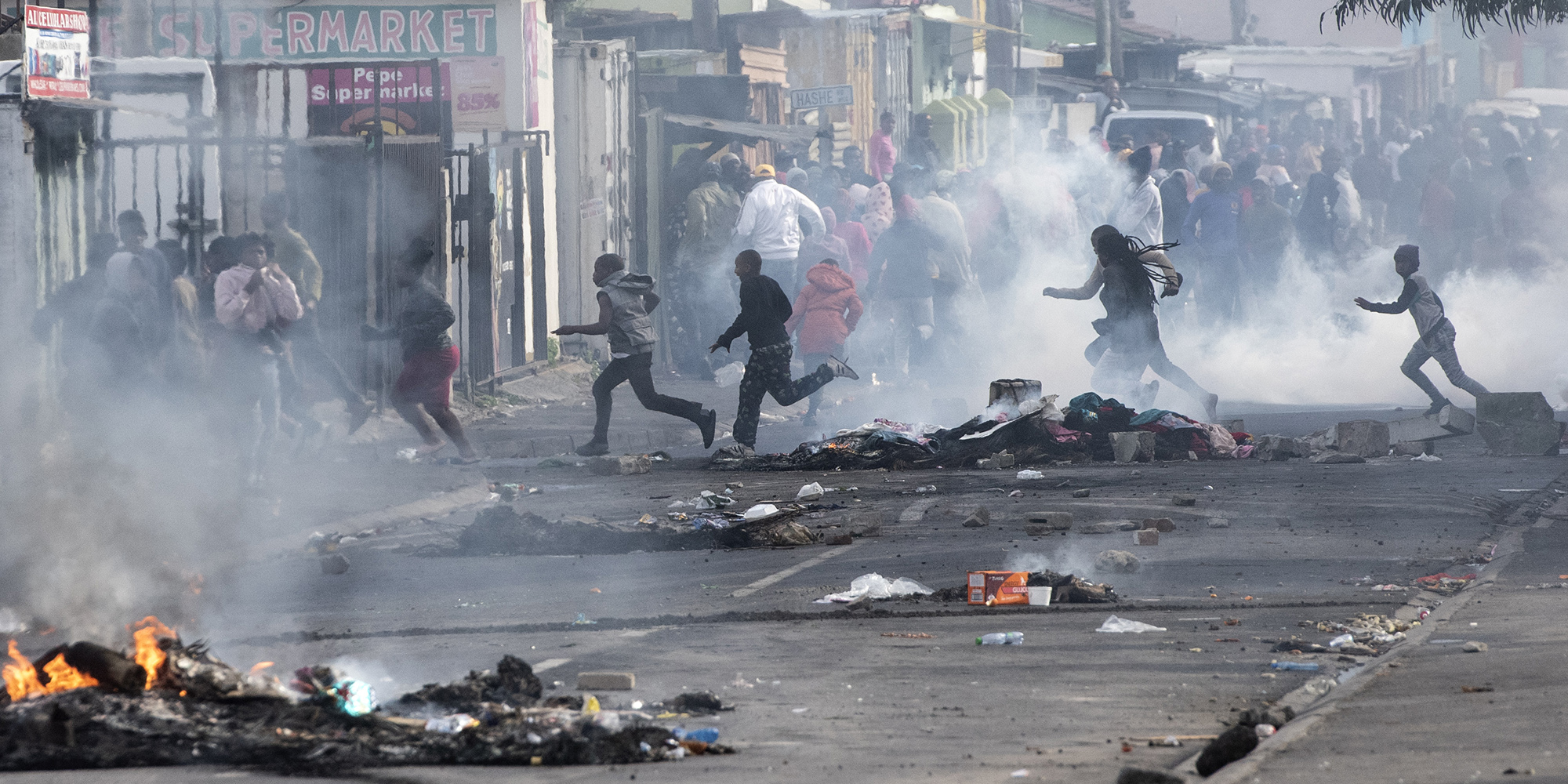 Protesters block the entrance to Masiphumelele informal settlement in Cape Town with burning tyres and rocks on 8 August 2023. (Photo: Gallo Images / Brenton Geach)
Protesters block the entrance to Masiphumelele informal settlement in Cape Town with burning tyres and rocks on 8 August 2023. (Photo: Gallo Images / Brenton Geach)
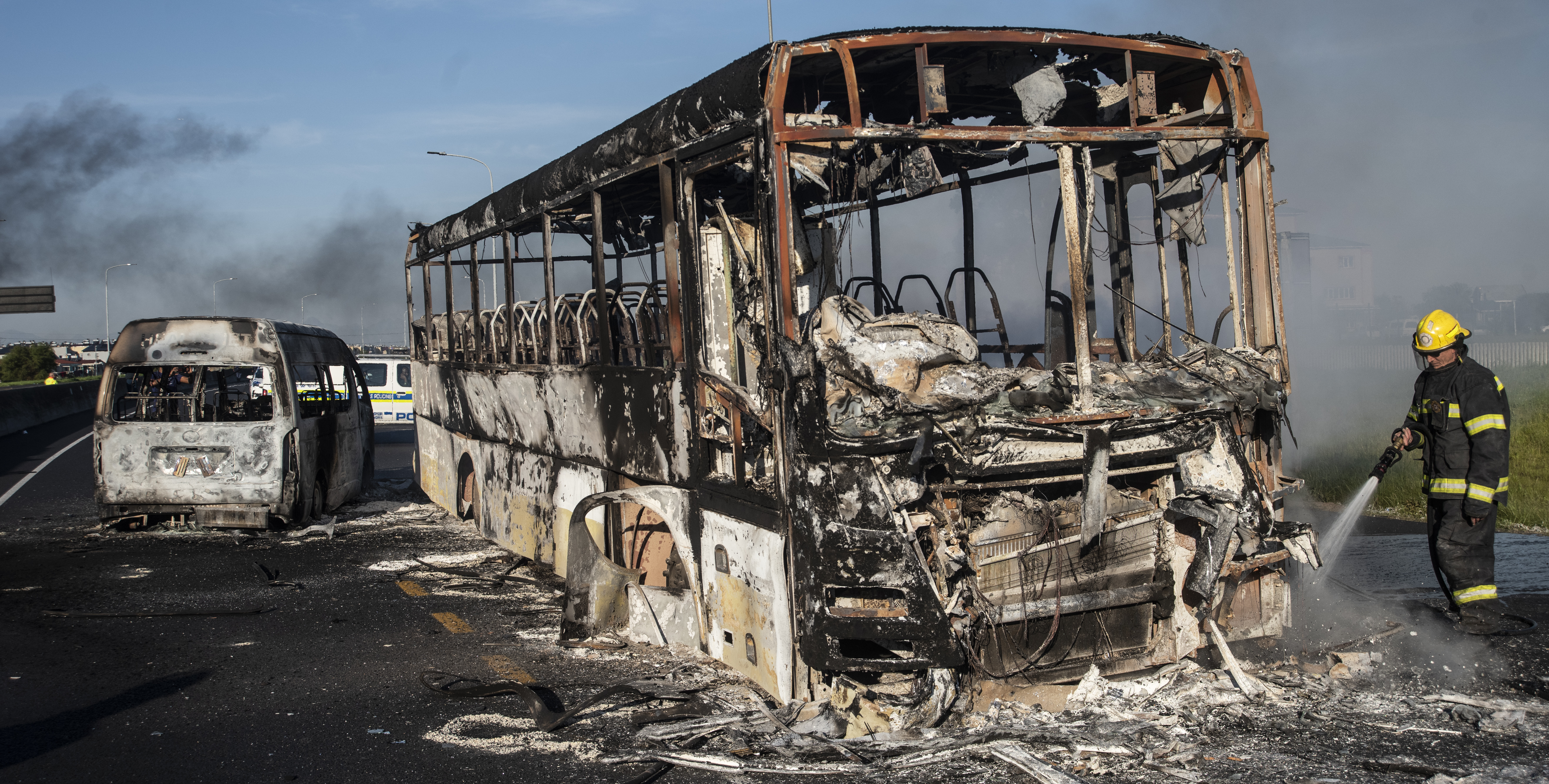 A bus was set slight and the driver shot in Khayelitsha as the taxi strike entered its second day. (Photo: Gallo Images / Brenton Geach)
A bus was set slight and the driver shot in Khayelitsha as the taxi strike entered its second day. (Photo: Gallo Images / Brenton Geach)
Mayhem and loss of life
What was initially announced as a simple stayaway by the biggest public transport association in the country turned into mayhem and loss of life.
Santaco, which represents eight regional taxi associations, met in Makhaza, Cape Town, on 3 August to discuss tension between the industry and the Western Cape government, and the City of Cape Town in particular.
The stayaway was sparked by what Santaco called a “frivolous [taxi] impoundment operation by the government”. A clash between taxi operators and law enforcement officers on 1 August influenced the decision to go on strike.
Although the focal point of the strike was the City’s new traffic by-law, which came into effect in July, the hostility between Santaco and the municipality is nothing new.
The by-law gives municipal officials the power not only to fine offenders, but also to impound vehicles for what are considered to be minor infringements by the National Road Traffic Act.
Under the Act, drivers who are not carrying their licences are fined and allowed to go. Under the new by-law, drivers not only get fined, but their vehicles are also impounded.
Other offences that now result in both a fine and vehicle impoundment include missing numberplates or not having numberplates securely attached, unroadworthy vehicles, vehicles with defective lights and vehicles that have been illegally modified. The by-law also covers illegal street racing.
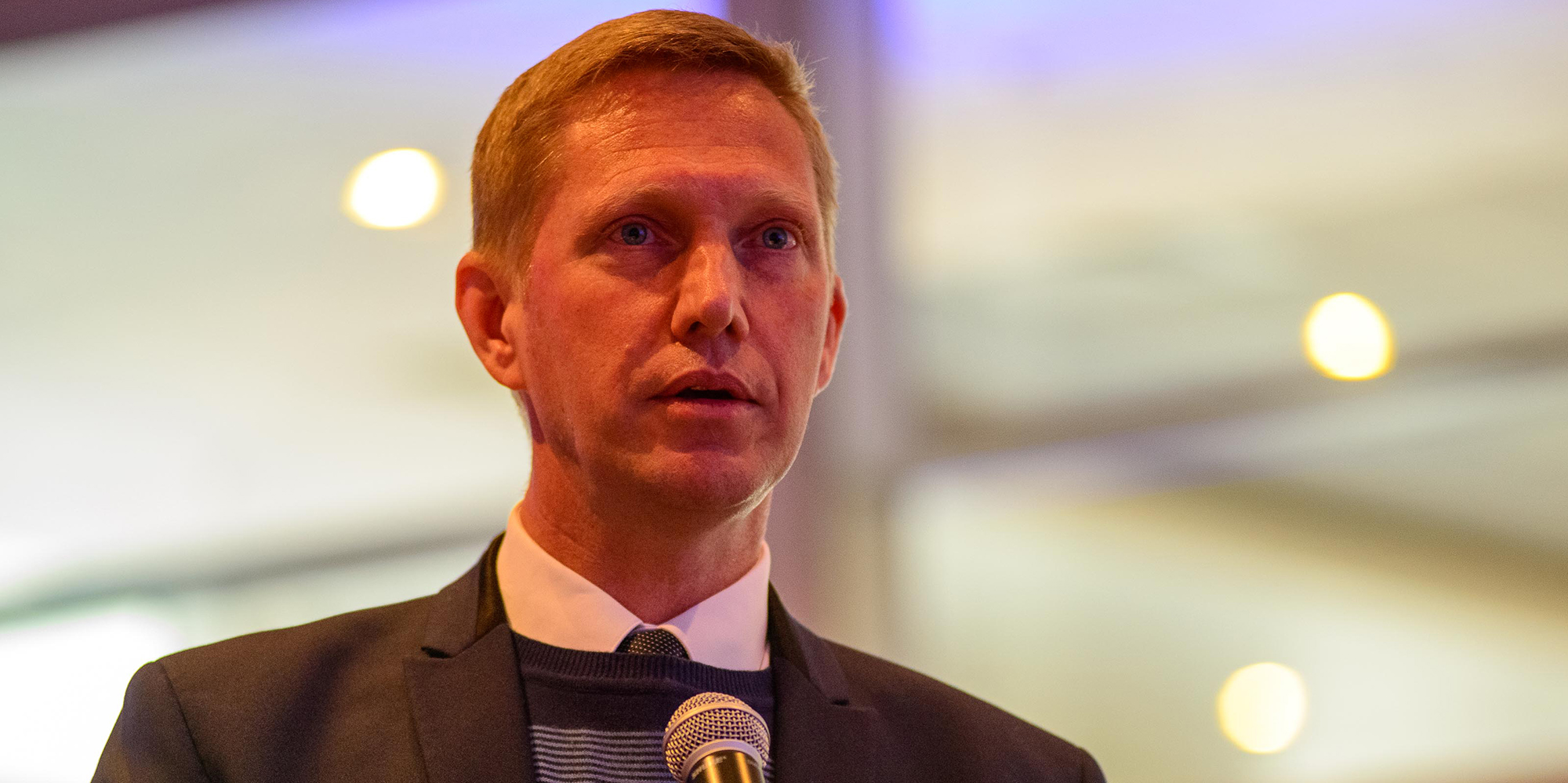 JP Smith, the mayoral committee member for safety and security. (Photo: ER Lombard / Gallo Images)
JP Smith, the mayoral committee member for safety and security. (Photo: ER Lombard / Gallo Images)
“With the harsh action intended to bring about lasting reform, the amended traffic by-law is the long-awaited answer to the majority of lawful motorists who long to see an improvement in road safety,” said JP Smith, the mayoral committee member for safety and security.
Santaco claims the by-law is specifically designed to target the taxi industry, which Smith vehemently denies.
Mandla Hermanus, Santaco’s Western Cape chair, says: “Since the beginning of the year, 6,000 taxis have been impounded, which amounts to 1,000 taxis a month.
“The numbers … paint a very clear picture of what we as the taxi industry have been saying all along: these operations are nothing more than a deliberate attempt to destroy the taxi industry in the province with no regard to the impact that this action will have on the communities that we service.”
Hermanus said Santaco was not opposed to the lawful impoundment of vehicles under the National Land Transport Act, which provides for vehicles to be impounded if they are unroadworthy or driven without a valid licence or professional driving permit.
Analyst Asanda Ngoasheng believes the DA tends to go overboard in formulating laws and neglects the fact that South Africa is not a federal state. She also believes the DA tends to be discriminatory in how it implements its rules.
She says the DA has to accept that the ANC, as the national government, will have the final say on laws, and the DA cannot create a separate country within South Africa.
“I think that one of the biggest issues we have is that we have a DA that models itself around US kind of politics which are based on federalism, and they are constantly pushing the envelope on what is and is not possible in SA’s provincial structure,” she says.
 A family in the vicinity of Crossroads asked for a police escort after their car with four occupants, including two children, was stoned. One of the children was injured. (Photo: Ashraf Hendricks)
A family in the vicinity of Crossroads asked for a police escort after their car with four occupants, including two children, was stoned. One of the children was injured. (Photo: Ashraf Hendricks)
President Ramaphosa weighs in
While delivering the keynote address at this year’s Women’s Day celebrations, President Cyril Ramaphosa explained that the event had been moved from Khayelitsha in the Western Cape to the Union Buildings in Pretoria because of the taxi strike.
“While our democracy protects peaceful protest and lawful strike action, we strongly condemn the violence and destruction caused by this dispute,” he said.
He was “appalled” by the killings, assaults and disruptions.
“Blocked roads lead to blocked business, blocked education and blocked health services, which will have long-lasting effects on life in the city. We must uphold the law and we must solve problems through meaningful dialogue,” he said.
The Minister of Transport, Sindisiwe Chikunga, described Cape Town’s new by-law as illegal and was instructed by the Cabinet to challenge it. Sources close to the minister said she had received legal advice to take the matter to court if she could not convince the municipality to drop it.
Santaco has for years enjoyed a cordial relationship with the former transport minister and current ANC secretary-general Fikile Mbalula. He speaks the language of the taxi drivers, and many taxi owners have links with the governing party.
Another person who could calm the taxi association was former transport MEC Bonginkosi Madikizela. (He resigned after a Daily Maverick investigation found that he had lied about his qualifications.) He never let matters get out of hand and, although he rebuked the industry for violence its protests caused, he and the industry always found a way to negotiate.
Santaco has said it does not feel that the current transport MEC, Mackenzie, is the man in charge and has said he always has to consult Smith before making responses.
Smith has taken a hard line on the industry and is seen as the main enemy by taxi bosses. He exacerbated tension when he announced that he had been directed by Hill-Lewis to impound 25 taxis for every vehicle torched during the strike.
The mayor has since had to clarify that the statement meant every taxi involved in the blocking of roads would be impounded.
 Commuters help push a child through the window to get a space in the bus on 3 August 2023 in Cape Town. Buses were overloaded due to the taxi strike. (Photo: Shelley Christians)
Commuters help push a child through the window to get a space in the bus on 3 August 2023 in Cape Town. Buses were overloaded due to the taxi strike. (Photo: Shelley Christians)
 A body lies at the Borchards Quarry at the entrance to Nyanga on the fifth day of the taxi strike. (Photo: Brenton Geach)
A body lies at the Borchards Quarry at the entrance to Nyanga on the fifth day of the taxi strike. (Photo: Brenton Geach)
Politicians playing politics
Since the beginning of the strike, the Western Cape provincial government and the leadership of the Cape Town Metro have not been able to find alignment with the national government.
Two ANC ministers, Chikunga and Minister of Police Bheki Cele, seem to be of the firm belief that the DA-run Western Cape government is at fault, but Hill-Lewis and his colleagues have stood their ground.
This disagreement can be seen either as a genuine crisis caused by the new by-law or as a way for political parties to score points ahead of the 2024 general elections.
DA provincial leader and infrastructure MEC Tertius Simmers issued a statement in which he accused the ANC of intentionally sowing discord in the province.
“ANC Minister of Police Bheki Cele attends a meeting with the taxi industry. A violent strike follows immediately. All the usual suspects are on the bandwagon – numerous RET factions, the EFF, political has-beens, and politicians continuously biting in the dust of DA progress.
“And then, to crown the outrageous behaviour, ANC Minister of Transport Sindisiwe Chikunga sides with those who wilfully break the very law she is charged to uphold!
“The ANC, incredibly yet expectedly, is banking on [getting] political mileage from the chaos.”
Political analyst Levy Ndou conceded that there was a possibility that those opposed to the DA’s leadership in the Western Cape could use the strike to show that the DA seemed anti-poor and out to punish the taxi industry.
He said: “This shows a disconnect between ordinary people and those in government…
“This situation is difficult because the DA is trying to do things according to the laws but, at the same time, people in the taxi industry are referred to as a law unto themselves; they are used to being bullies.
“We [also] need to ask if the impounding of cars was the only solution by the City of Cape Town.”
Ngoasheng argued that there was nothing sinister about how the ANC ministers had dealt with the matter. Instead, she said she believed there was a lack of empathy with the manner in which the DA dealt with any matter involving black people.
“The language they use is language that discredits, disrespects; it is a language which demonises people who are in some ways fighting for the legitimate right to be able to continue their business without having their vehicles impounded,” she said.
“I do not think that the ANC is using the matter to score political points and discredit the DA because they are not in a position to do so. Apartheid spatial planning … is such that the people who are most affected are black and coloured people.
“Anything that affects taxis will affect ANC voters, so they would not, so close to 2024, even dare try a strategy of abandoning South Africans.”
In the season leading up to elections, all political parties will escalate acts of brinkmanship and grandstanding to woo voters.
If the ANC continues to lose support in the Western Cape, that could make the difference, in a tight election, between the ANC governing the country outright and having to form a coalition.
But the price of playing power politics while cities burn is shown by the taxi strike. Everyone loses when things fall apart and anarchy reigns. DM
This story first appeared in our weekly Daily Maverick 168 newspaper, which is available countrywide for R29.
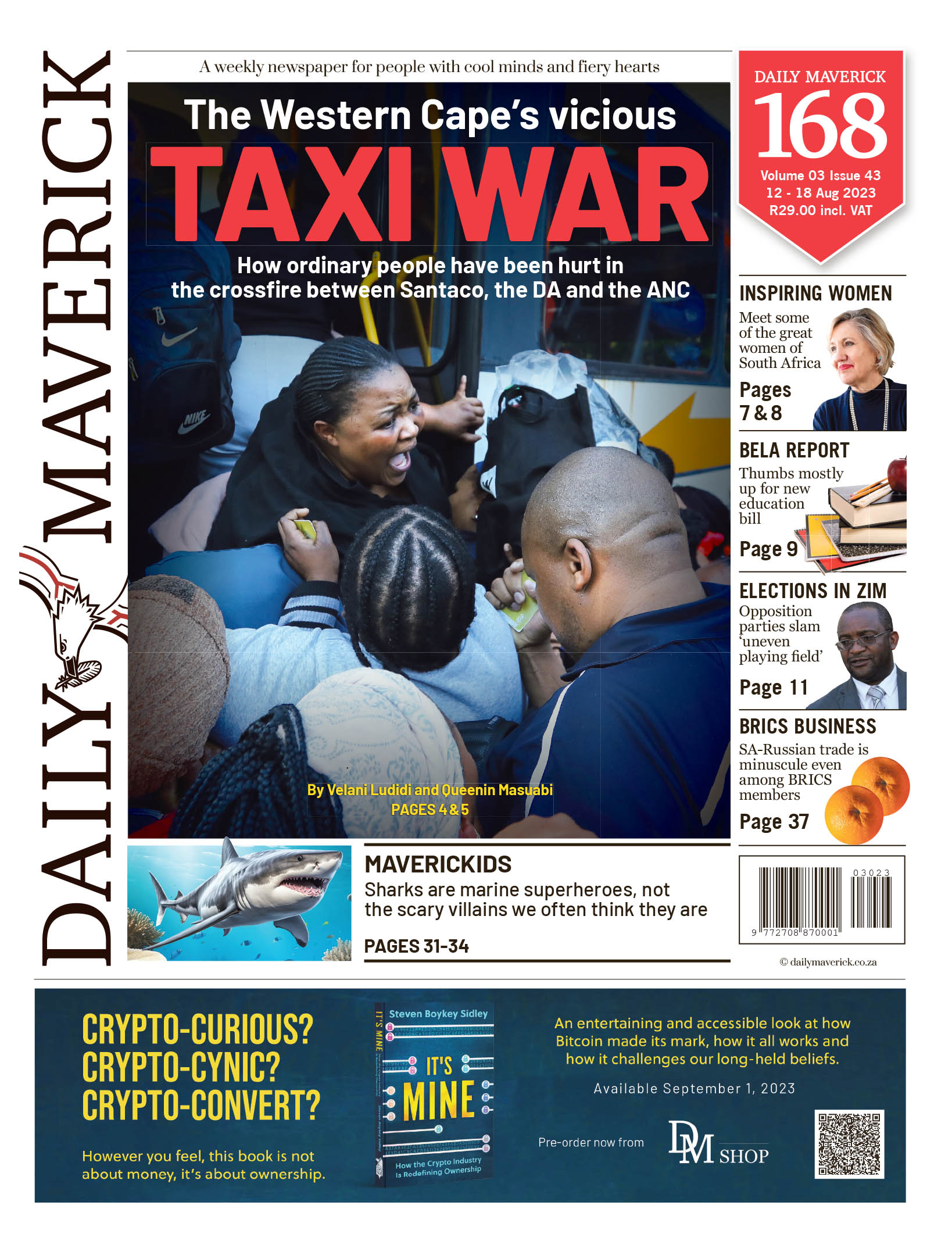




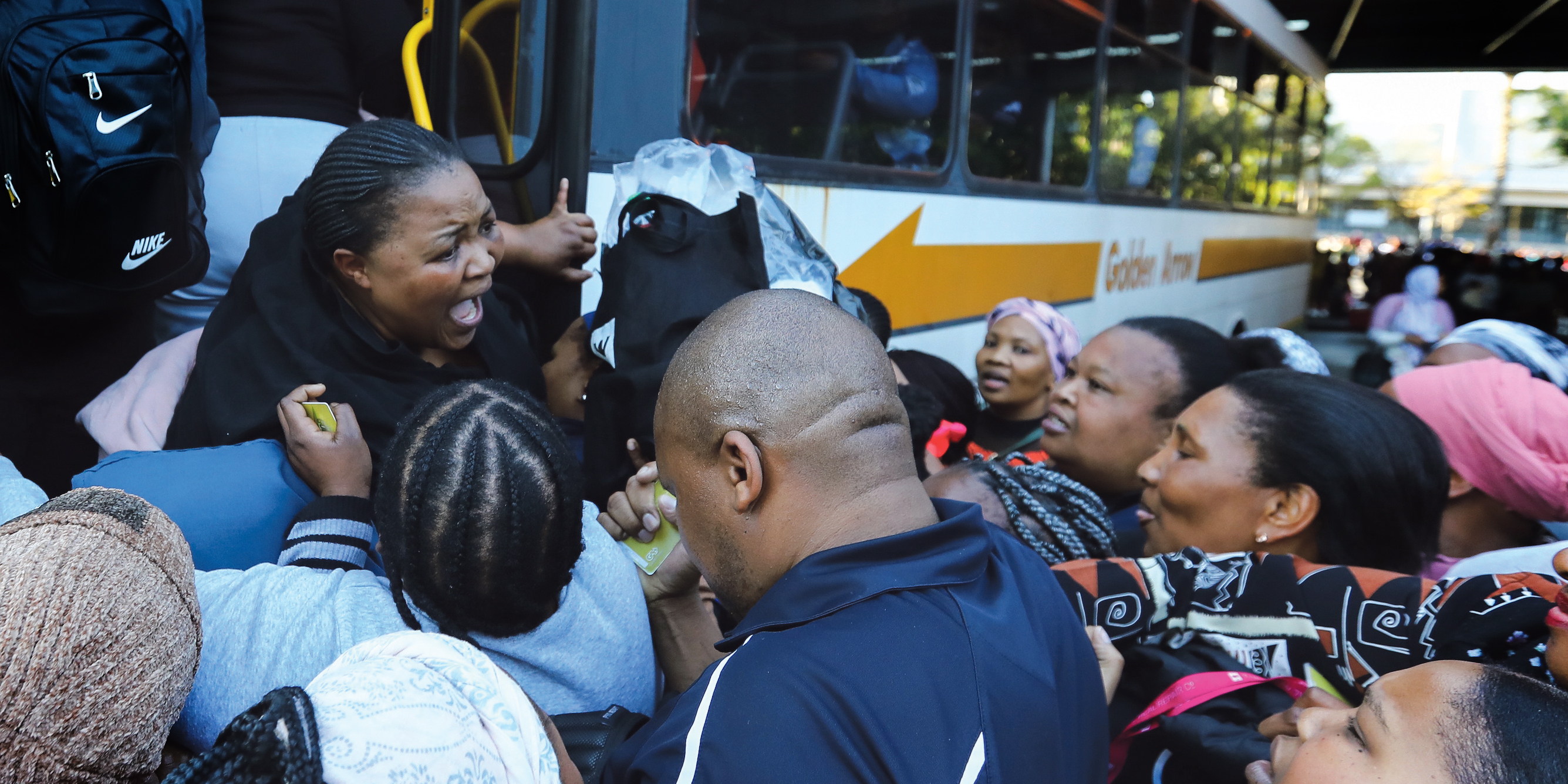 A body lies at the Borchards Quarry at the entrance to Nyanga on the 5th day of the taxi strike .Photo Brenton Geach
A body lies at the Borchards Quarry at the entrance to Nyanga on the 5th day of the taxi strike .Photo Brenton Geach